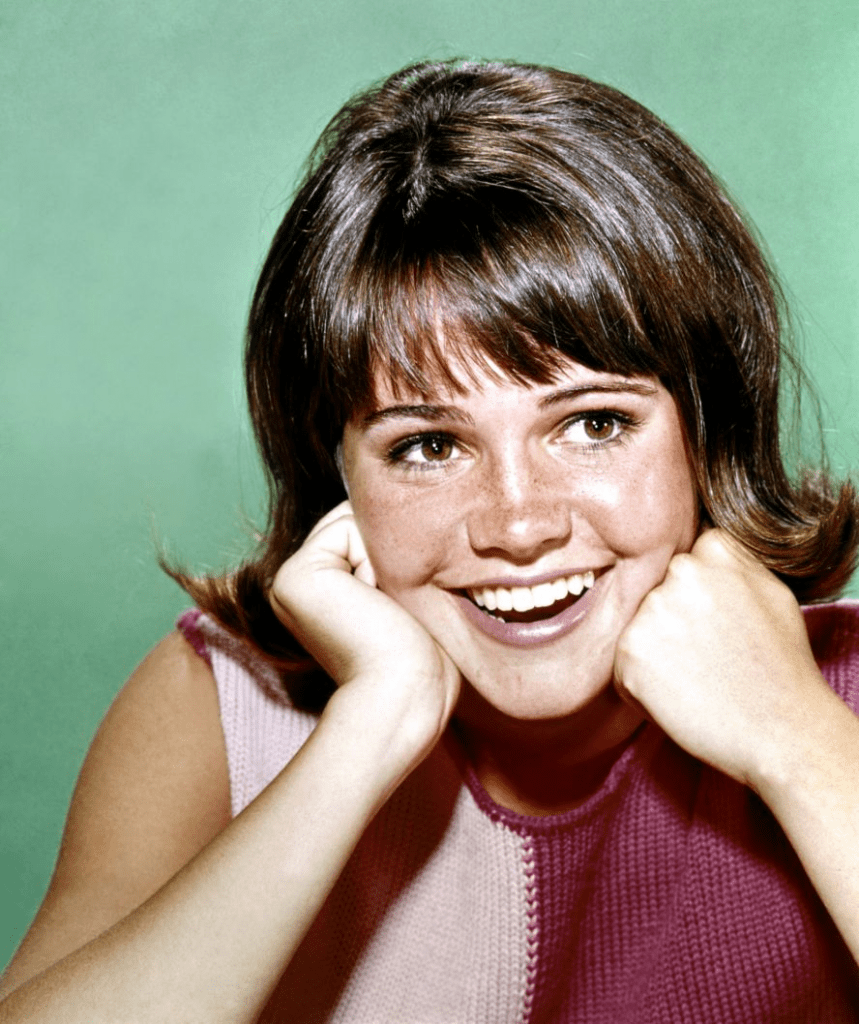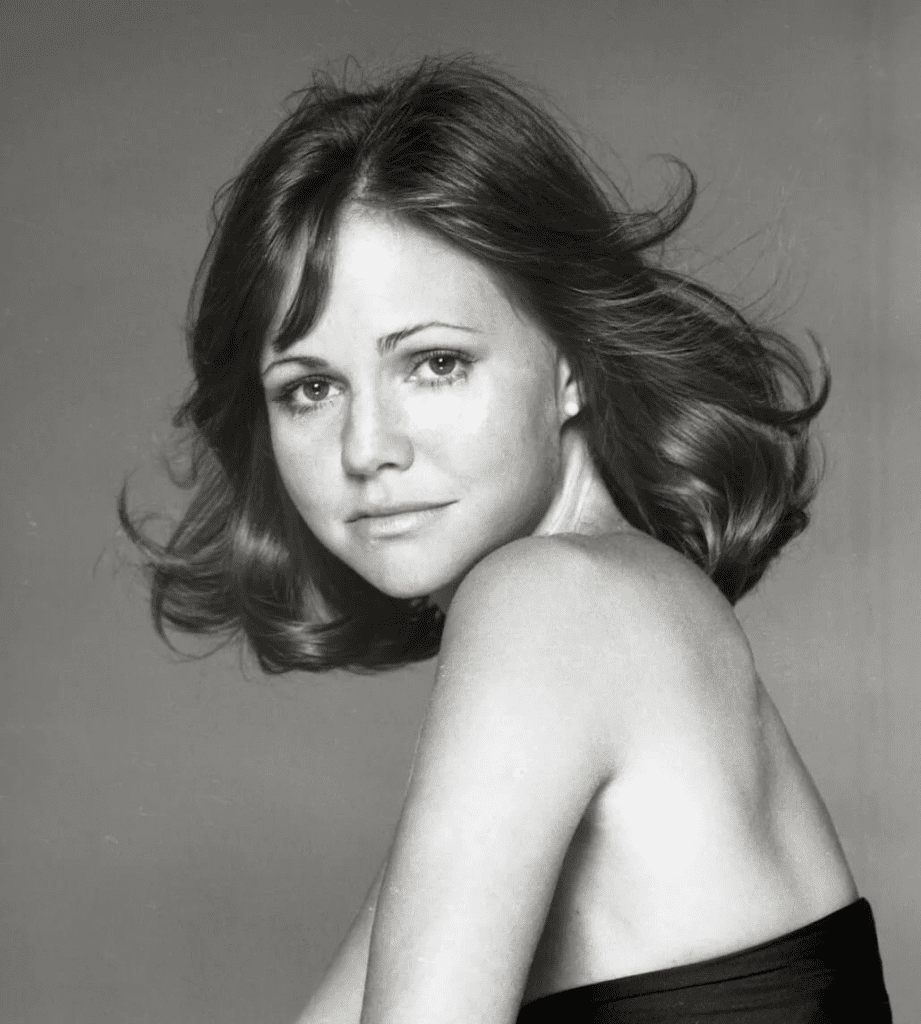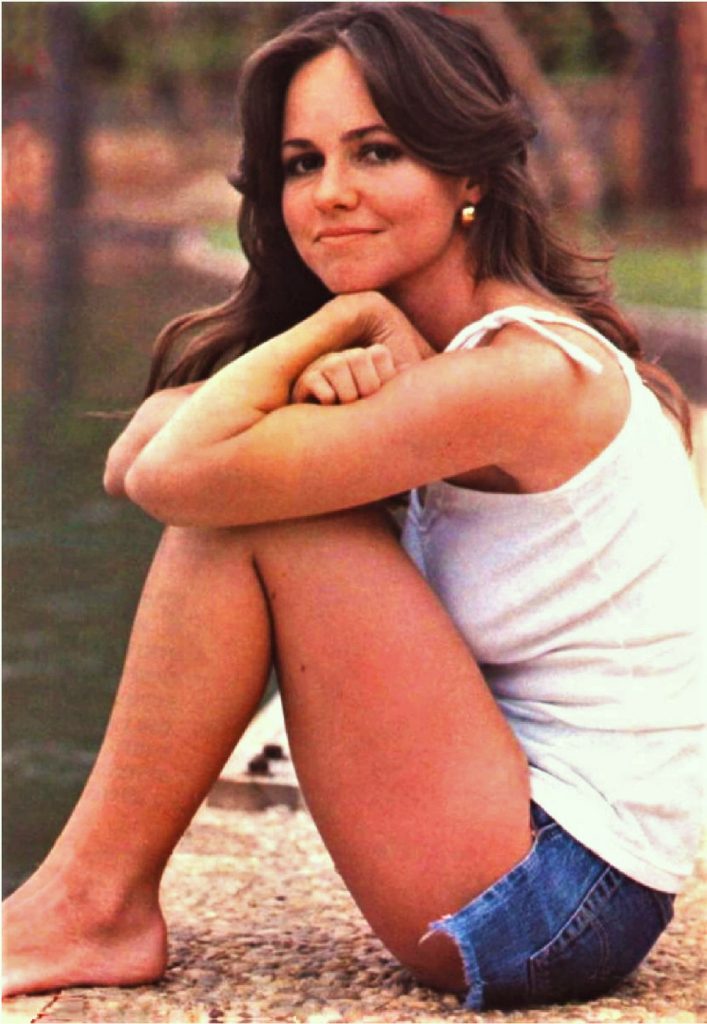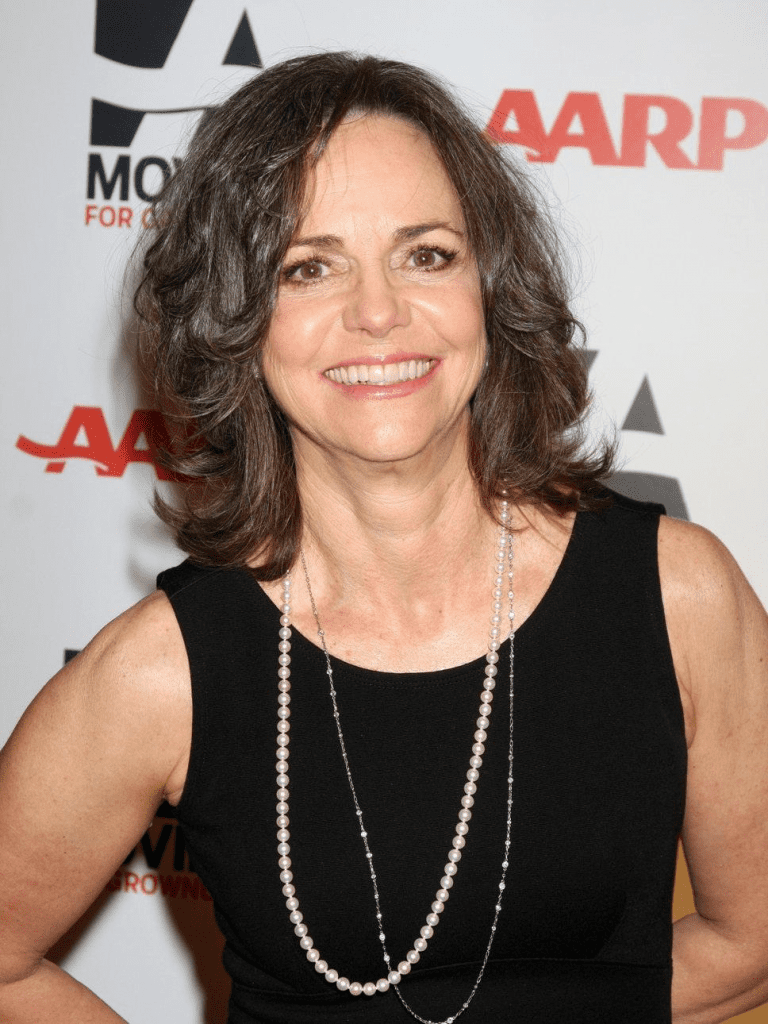The Woman Who Made Hollywood Feel Every Word She Spoke
Few stars embody authenticity like Sally Field. She’s more than an actress—she’s a living expression of raw emotion, an artist who can turn a whisper into a revolution. From her early television charm to her Academy Award triumphs, Field has spent over six decades reminding audiences that true performance doesn’t come from pretending—it comes from feeling. And who could forget that iconic Oscar night when she stood teary-eyed before the world and declared, “You like me, you really like me!” That wasn’t just a speech—it was a declaration of hope for every dreamer who’s ever longed to be seen.

Early Days in Pasadena: A Star Shaped by Strength and Vulnerability
Born on November 6, 1946, in Pasadena, California, Sally Margaret Field grew up surrounded by both light and shadows. Her mother, actress Margaret Field, introduced her to the world of performance, while her father, Richard Field, offered a more grounded view of life. But when her parents divorced, young Sally learned early how fragile and resilient love could be.

Her stepfather, actor and stuntman Jock Mahoney, brought both excitement and turbulence into her home. Those formative years weren’t easy, but they built the emotional depth that would later make her one of the most compelling performers of her time.

At Birmingham High School, Sally found her sanctuary in drama class. She wasn’t the loudest or the most confident, but she had something no one else did—honesty. That natural sincerity caught the attention of casting agents, and before long, she was stepping into a role that would launch her career.
Video : 13 S*XY pics of Sally Field
From Gidget to The Flying Nun: Finding Her Voice in Hollywood
In 1965, Sally landed her first major television role as Gidget, a surf-loving teenager navigating life with humor and heart. Audiences adored her, but fame came with its own challenges. Just two years later, she was cast as the title character in The Flying Nun—a lighthearted comedy about a nun who could literally fly. The show became a hit, but Sally felt trapped by its simplicity.

Behind the scenes, she battled with the industry’s tendency to underestimate her. She longed to play complex women, not caricatures. Determined to evolve, she joined The Actors Studio, where she trained under the legendary Lee Strasberg. There, she discovered how to turn emotion into art—and the transformation was life-changing.

A Breakthrough Called Sybil: Shattering Stereotypes
In 1976, Sally Field stunned the world with her portrayal of Sybil, a woman living with multiple personalities. Gone was the bubbly girl from sitcoms—this was a woman unafraid to confront pain. The performance earned her an Emmy Award and universal acclaim. Critics finally saw what Sally always knew: she was a serious actress, capable of exploring the deepest corners of the human heart.
This role marked a turning point, setting the stage for her next defining moment on the big screen.

Norma Rae: The Role That Changed Everything
Three years later, Sally took on a role that would etch her name in cinematic history. As Norma Rae, a Southern textile worker turned union activist, she embodied the spirit of determination and courage. Her performance was electric—raw, defiant, and full of soul.

Holding that “UNION” sign high above her head, she didn’t just play a character—she became a symbol of empowerment. The film won her the Academy Award for Best Actress, along with global recognition as one of Hollywood’s most powerful talents.

You Like Me! – A Moment That Defined a Generation
When Sally won her second Oscar for Places in the Heart (1984), she stood on stage, overwhelmed with emotion, and spoke from the heart: “You like me, you really like me!” The line, often misquoted and misunderstood, wasn’t vanity—it was vulnerability. It was a woman who had fought to be taken seriously finally feeling accepted.

That speech became one of Hollywood’s most iconic moments, echoing across decades as a testament to perseverance and authenticity.
Beloved Roles Across Generations
From the 1980s onward, Sally Field became the emotional backbone of every project she touched. In Steel Magnolias (1989), she delivered one of the most heart-wrenching motherly performances in film history. In Forrest Gump (1994), she taught the world that “life is like a box of chocolates” with the quiet wisdom of someone who had lived it all.

She didn’t just act—she felt. And in doing so, she made millions of others feel too. Later roles in Lincoln (2012) and the series Brothers & Sisters (2006–2011) showcased her incredible range, earning her additional awards and admiration from a new generation of fans.
Video : Sally Field Goes TOPLESS, Try Not TO Gasp..Take a look
The Woman Beyond the Screen: Activism, Honesty, and Healing
Off-screen, Sally Field has been as fearless as her characters. She’s an outspoken advocate for women’s rights, LGBTQ+ equality, and healthcare awareness. Her fight against osteoporosis led to the national “Rally with Sally” campaign, where she encouraged others to take control of their health.

Her 2018 memoir, In Pieces, offered a raw, courageous look into her personal struggles—childhood trauma, self-doubt, and the fight to find her own voice in an industry that often tried to silence it. The book revealed the woman behind the legend: flawed, brave, and utterly real.
Still Shining: Sally Field in the 21st Century
Now in her late seventies, Sally Field continues to inspire. Whether it’s starring in comedies like 80 for Brady (2023) or earning the SAG Life Achievement Award, she remains Hollywood’s emotional compass—grounded, wise, and full of life.

Her secret? She never lost her authenticity. While others chased fame, she chased truth. Even today, her words and performances remind us that vulnerability isn’t weakness—it’s strength in its purest form.
A Legacy of Heart and Humanity
Sally Field’s story is more than a career—it’s a masterclass in endurance, empathy, and evolution. She’s shown that art doesn’t need explosions or spectacle to move people; it just needs honesty.

From Gidget’s innocence to Norma Rae’s fire, from that trembling Oscar speech to her calm advocacy today, she’s proven that real greatness isn’t about pretending—it’s about feeling.
And maybe that’s why, after all these years, we still like her. We really, really like her.